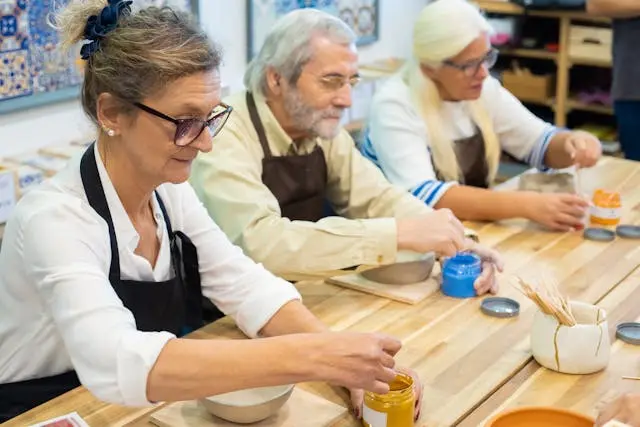Engaging in meaningful conversations with seniors experiencing memory loss is not just about communication; it’s about fostering connection, preserving dignity, and enhancing their overall well-being. Here’s why conversing with seniors with memory loss is so important:
1. Preserving Identity: Conversations allow seniors to share their stories, experiences, and wisdom, helping to preserve their sense of identity and personal history. Despite memory loss, individuals still retain valuable insights and perspectives that can be shared through conversation.
2. Emotional Well-being: Social interaction is vital for emotional well-being, regardless of age. Engaging in conversation provides seniors with a sense of companionship, belonging, and validation, which can help combat feelings of loneliness and isolation commonly experienced by those with memory loss.
3. Stimulation of Cognitive Function: Regular communication stimulates cognitive function and may help slow down the progression of memory loss. Conversations provide mental exercise, challenging the brain to process information, recall memories, and engage in complex thought processes.
4. Validation and Empowerment: Conversing with seniors with memory loss validates their experiences and emotions, empowering them to express themselves and feel heard. It acknowledges their continued relevance and worth as individuals, fostering a sense of dignity and self-esteem.
5. Enhanced Quality of Life: Meaningful conversations contribute to a higher quality of life for seniors with memory loss. Engaging in enjoyable and stimulating discussions promotes happiness, reduces stress, and improves overall mood and outlook on life.
6. Strengthening Relationships: Communication is fundamental to building and maintaining relationships. By conversing with seniors with memory loss, family members, caregivers, and friends can deepen their connections, strengthen bonds, and create lasting memories together.
7. Promotion of Physical Health: Engaging in conversations may indirectly contribute to better physical health outcomes for seniors with memory loss. Positive social interactions have been linked to lower levels of stress hormones, improved immune function, and even a reduced risk of certain chronic conditions.
8. Facilitation of Caregiving: Effective communication is essential for providing high-quality care to seniors with memory loss. Conversations allow caregivers to understand the individual’s needs, preferences, and concerns, enabling them to tailor their support and assistance accordingly.
9. Opportunities for Reminiscence Therapy: Conversations provide opportunities for reminiscence therapy, a therapeutic approach that involves discussing past memories and experiences. Reminiscing can evoke positive emotions, stimulate cognitive function, and promote a sense of fulfillment and purpose.
Maintaining connections with individuals who struggle with memory loss is vital for their well-being and sense of belonging. While their recollections may falter, the emotional impact of human interaction remains profound. Regular visits and conversations serve as anchors to their identity and reality, offering moments of clarity and comfort in a sometimes-bewildering world. Beyond mere reminiscence, these interactions foster a sense of connection and purpose, affirming their value and dignity. Through patient listening and engaging dialogue, we not only honor their past but also affirm their present, affirming that they are still seen, heard, and cherished. Such interactions also provide opportunities for caregivers and loved ones to learn more about their needs and preferences, enabling better support and enhancing their quality of life. In this way, the simple act of talking and visiting those who struggle with memory loss becomes a profound expression of empathy and solidarity, enriching both their lives and our own.
Photo by Jeremy Wong





